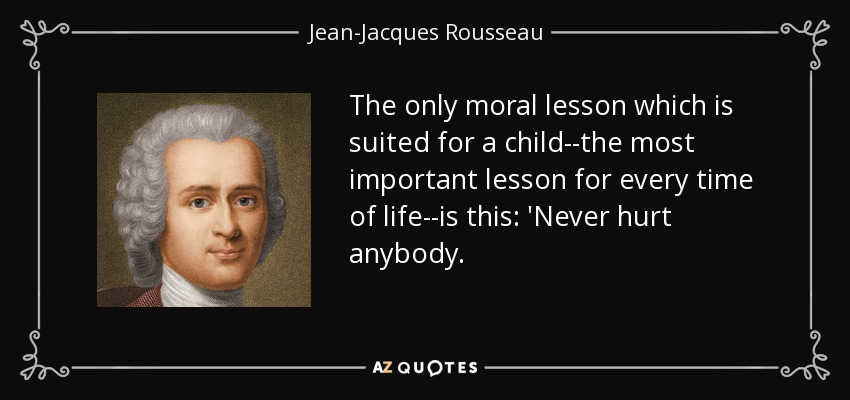

Nevertheless, this right does not come from nature, and must therefore be founded on conventions. If I took into account only force, and the effects derived from it, I should say: “As long as a people is compelled to obey, and obeys, it does well as soon as it can shake off the yoke, and shakes it off, it does still better for, regaining its liberty by the same right as took it away, either it is justified in resuming it, or there was no justification for those who took it away.” But the social order is a sacred right which is the basis of all rights.

What can make it legitimate? That question I think I can answer. How did this change come about? I do not know. One thinks himself the master of others, and still remains a greater slave than they. Man is born free and everywhere he is in chains. How, as Rousseau himself asks, can one enter into an agreement which limits one’s power without thereby “harming his own interests and neglecting the care he owes to himself?”

While Rousseau’s famous opening line condemns the society of his day for its limiting of our natural spontaneity (indeed, its corruption of our natural goodness), he thinks that a good government can be justified in terms of the compromise to which each of us submits so as to gain “civil liberty and the proprietorship of all he possesses.” Rousseau even thinks that we mature as human beings in such a social setting, where we are not simply driven by our appetites and desires but become self-governing, self-disciplined beings. Jean-Jacques Rousseau, in The Social Contract, propounds a doctrine which already had a long history in the struggle against the older view of the divine right of kings, namely, that government gets its authority over us by a willing consent on our part, not by the authorization of God.


 0 kommentar(er)
0 kommentar(er)
